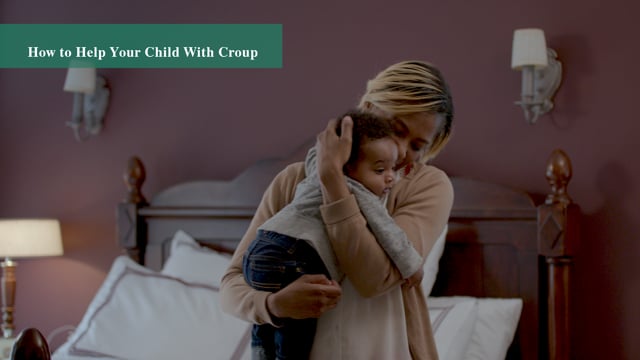- Parents Home
- Para Padres
- A to Z Dictionary
- Allergy Center
- Asthma
- Cancer
- Diabetes
- Diseases & Conditions
- Doctors & Hospitals
- Emotions & Behavior
- First Aid & Safety
- Flu (Influenza)
- Food Allergies
- General Health
- Growth & Development
- Heart Health & Conditions
- Homework Help Center
- Infections
- Newborn Care
- Nutrition & Fitness
- Play & Learn
- Pregnancy Center
- Preventing Premature Birth
- Q&A
- School & Family Life
- Sports Medicine
- Teens Home
- Para Adolescentes
- Asthma
- Be Your Best Self
- Body & Skin Care
- Cancer
- Diabetes
- Diseases & Conditions
- Drugs & Alcohol
- Flu (Influenza)
- Homework Help
- Infections
- Managing Your Weight
- Medical Care 101
- Mental Health
- Nutrition & Fitness
- Q&A
- Safety & First Aid
- School, Jobs, & Friends
- Sexual Health
- Sports Medicine
- Stress & Coping
What to Do About Croup
Croup is often caused by a viral infection in the upper airway, around the vocal cords and windpipe. Swelling in this area may cause a barking cough. Croup, most often seen in the fall, usually affects young children.
What Are the Signs & Symptoms of Croup?
- a barking cough
- a high-pitched sound when breathing in (known as stridor)
- breathing harder than usual
- stuffy or runny nose
- fever

How to Help Your Child With Croup - 2025
What Can I Do About Croup?
- Run a hot shower to create a steam-filled bathroom where you can sit with your child for 20 minutes.
- Take your child outside during cooler months for a few minutes. This may help breathing.
- Use a cool-mist humidifier. Having your child breathe in the moist air will sometimes ease symptoms.
Get Medical Care If Your Child:
- has trouble breathing (breathing too fast or skin between the ribs is pulling in)
- has a pale or bluish color around the mouth
- drools or has trouble swallowing
- becomes tired easily
What Can Help Prevent Croup?
Washing hands well and often and avoiding contact with people who have respiratory infections are the best protection against the spread of viruses that cause croup.

© 1995- The Nemours Foundation. KidsHealth® is a registered trademark of The Nemours Foundation. All rights reserved.
Images sourced by The Nemours Foundation and Getty Images.